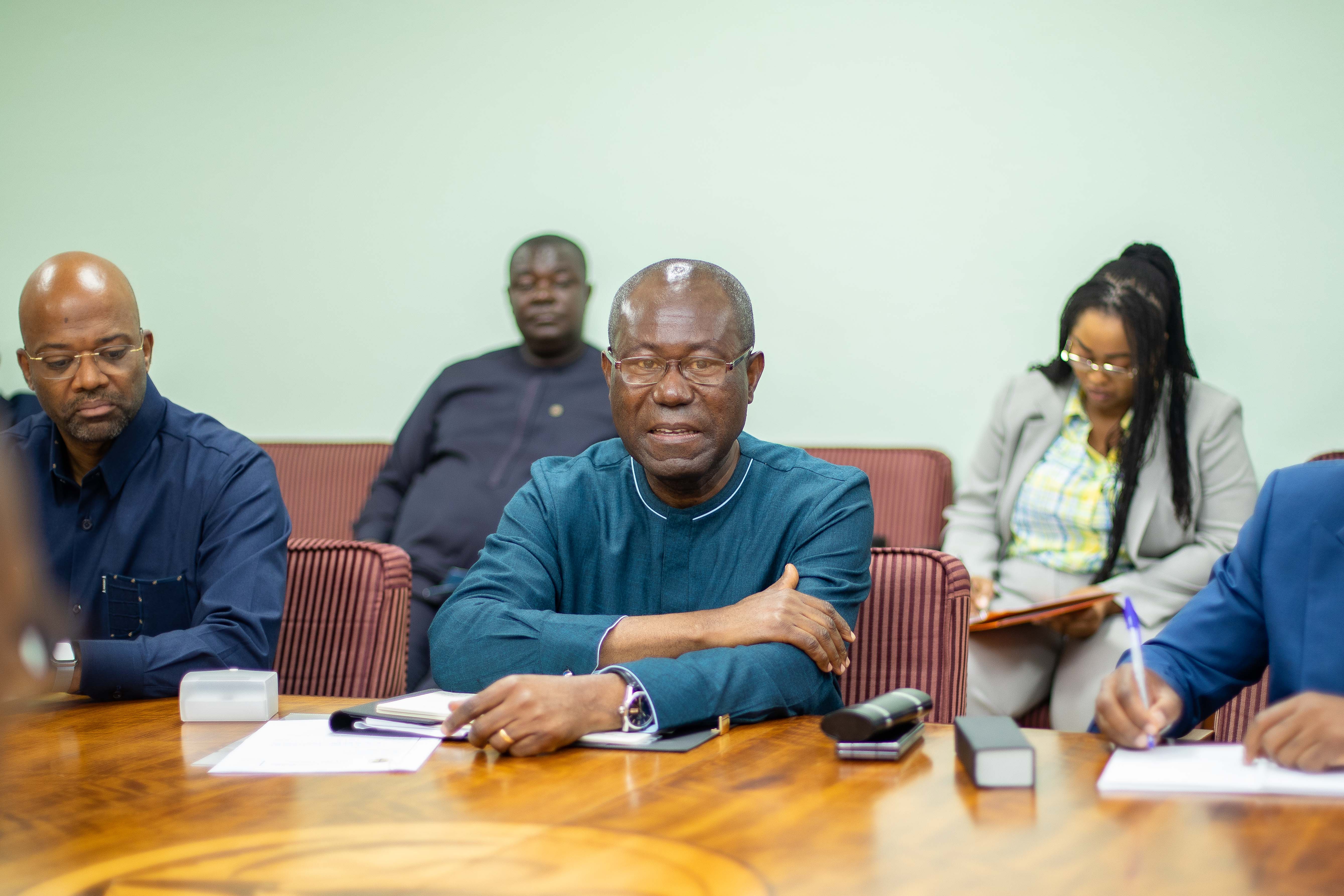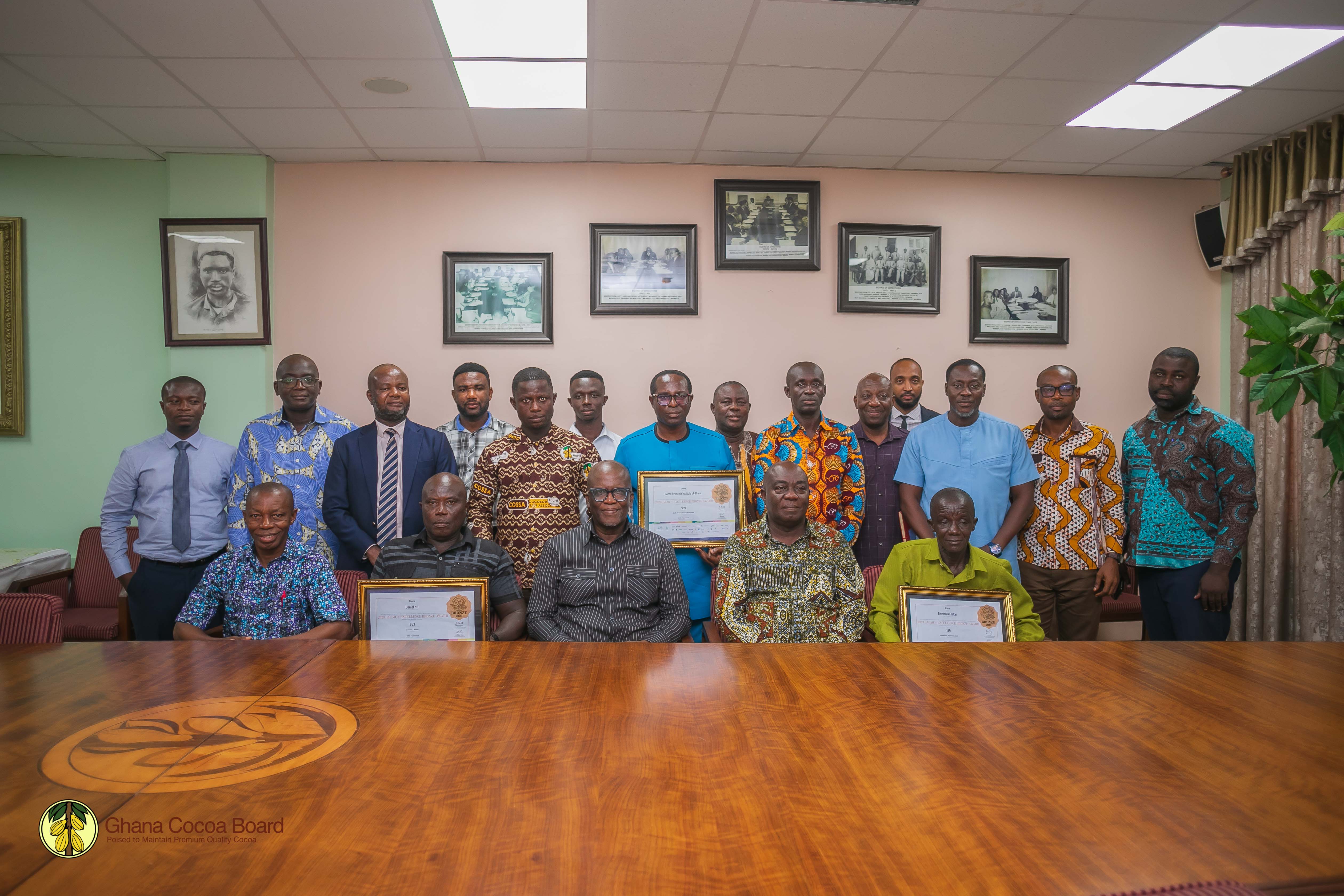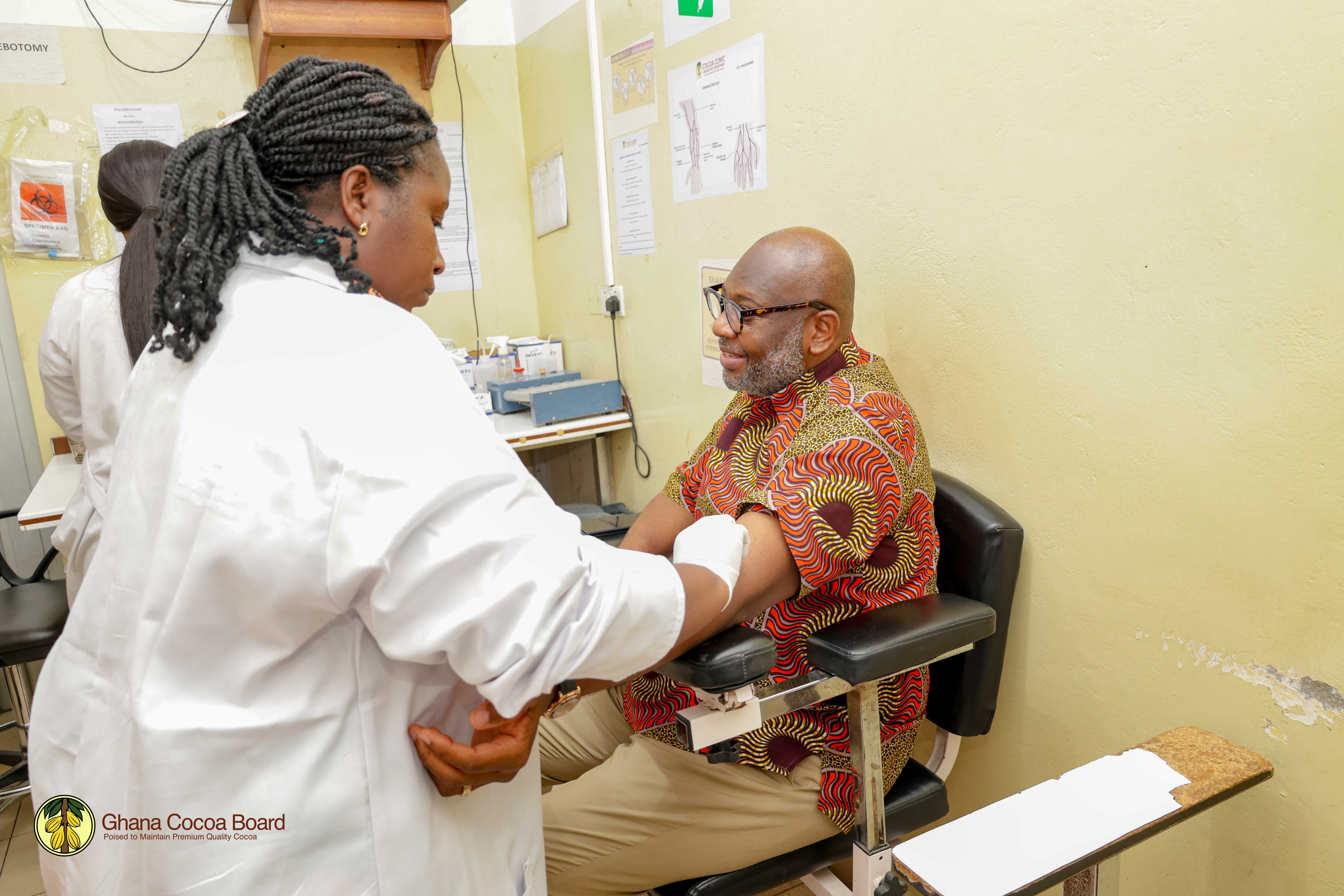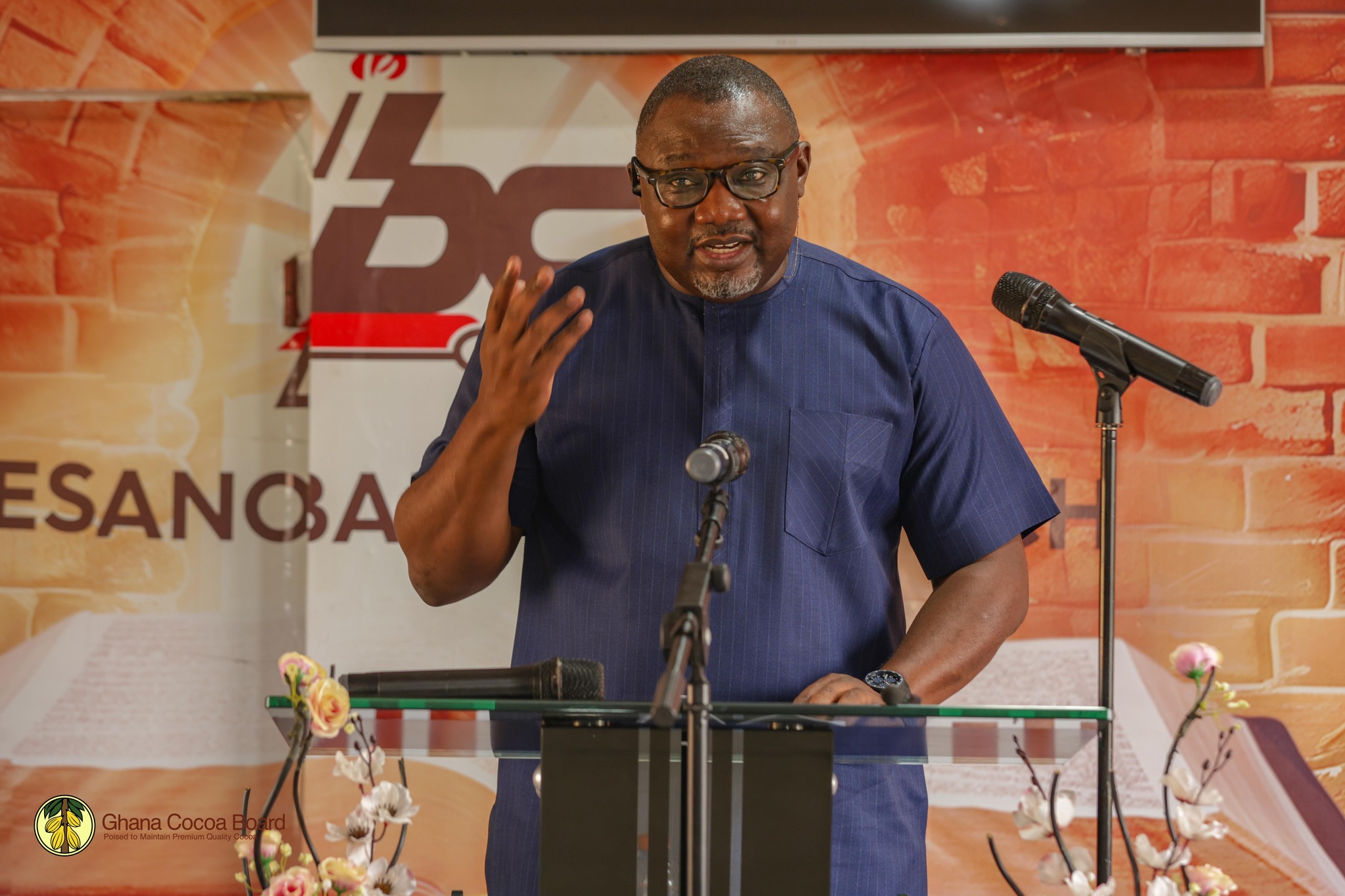COCOBOD CALLS FOR EQUITABLE COST-SHARING OF TRACEABILITY INFRASTRUCTURE

Date: 15th April 2024
The Chief Executive of Ghana Cocoa Board (COCOBOD), Hon Joseph Boahen Aidoo, has underscored the need to implement an equitable cost-sharing framework involving Ghana, the European Union (EU), and operators to sustain Ghana’s cocoa traceability infrastructure, under its Cocoa Management System (CMS).
He said, while the advantages of a robust traceability system are anticipated to benefit all stakeholders in the industry, producer countries, such as Ghana, have thus far borne the brunt of the costs associated with establishing the essential infrastructure for traceability.
It is, therefore, important, he added, to engage in further dialogue to establish clear protocols and formulae for the distribution of operational costs of the traceability system along the value chain.
The COCOBOD CE made this call during a meeting in Accra with an EU delegation led by its Commissioner for Environment, Oceans, and Fisheries, Virginijus Sinkevicius.
He highlighted the fact that cocoa production in Ghana and neighbouring Cote d'Ivoire is already suffering from the effects of changes in climatic conditions, that threaten the livelihoods of millions in the region and warned that without proactive measures, cocoa production in the two countries will continue to suffer the effect of the increasingly severe climatic conditions.
The situation, he said, raises the need for greater support from the EU for climate adaptation and carbon management programmes, in the global south. He added that cocoa trees can play a pivotal role in reforesting vast areas of Ghana and serve as an effective tool for carbon sequestration.
Mr. Alex Assanvo, the Executive Secretary of the Côte d’Ivoire-Ghana Cocoa Initiative (CIGCI), on his part, affirmed the significant strides made by Ghana and Cote d'Ivoire in advancing their traceability infrastructure for their cocoa exports. He asserted that both countries are on track to meet the requirements under the impending EU regulations but expressed concern over the persistence of unauthorised cocoa trade routes into the EU market.
He said despite the progress and costs incurred by the two leading cocoa-producing countries in their traceability efforts, a substantial volume of cocoa continues to find its way into the EU through channels not sanctioned by the regulatory bodies in the two countries.
He therefore emphasised the importance of implementing stringent measures to curb the illicit inflow of cocoa into the EU. Failure to do so, he cautioned, could render the EU legislation more punitive than constructive for Ghana and Cote d'Ivoire.
In response, the EU Commissioner commended Ghana for its efforts toward aligning with the EU, adding that sustainable trade will generate local value for Ghana and other cocoa-producing countries.
While recognising the importance of the traceability infrastructure in Ghana and Côte d'Ivoire, he acknowledged the necessity for a cost-sharing mechanism but insisted that the responsibility should lie with operators, particularly in acquiring the traceability information required by EU port authorities.
He said the EU is committed to working with cocoa-producing nations to foster sustainable agricultural practices and improve economic outcomes for local communities.
Other News / Articles you might be interested in.

COCOBOD HONOURS GHANAIAN COCOA FARMERS FOR EXCELLENCE AT INTERNATIONAL COCOA AWARDS
Management of Ghana Cocoa Board (COCOBOD) has honoured the winners of the 2023 International ...
Read More
DR. RANSFORD ABBEY LEADS BY EXAMPLE, UNDERTAKES ANNUAL MEDICAL EXAMINATION AT COCOA CLINIC
The Chief Executive of the Ghana Cocoa Board (COCOBOD), Dr. Ransford Abbey, has ...
Read More
COCOA MEDIA HUB LAUNCHED TO ENHANCE OPEN GOVERNANCE AND FARMER ENGAGEMENT
Ghana Cocoa Board, along with various stakeholders, has participated in the official launch ...
Read More